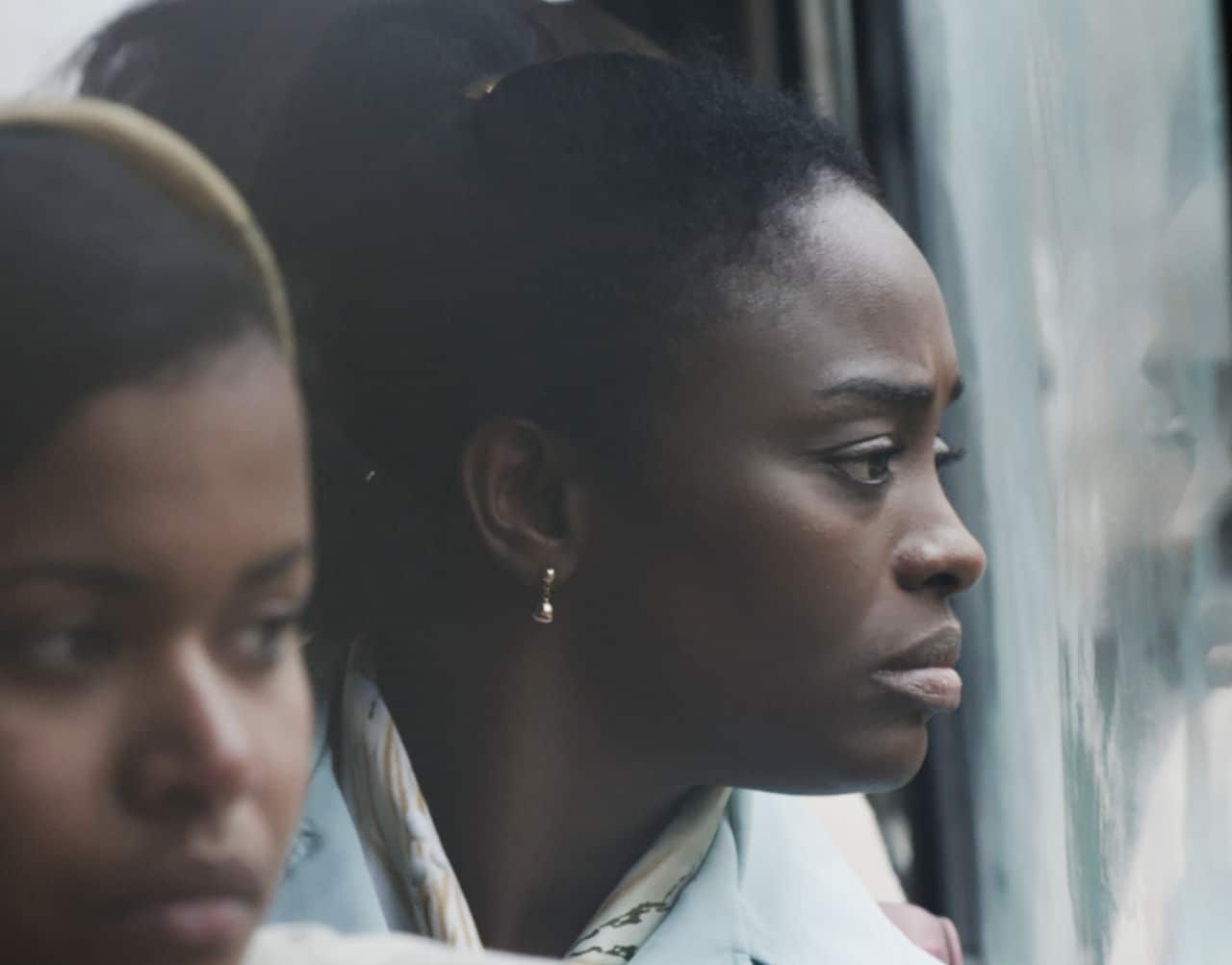A French "Windrush"? What France has done to its overseas populations
The "Windrush" scandal continues to make headlines in the UK. The British are outraged to discover the disgraceful way in which Caribbean Commonwealth workers have been treated.
Antonia Wimbush, University of Montpellier

Eloa Prod 2018
Encouraged to come to Britain after the Second World War to make up for labor shortages, they are now threatened with deportation if they cannot prove they have the right to reside here. What is less well known is that France also experienced these waves of post-war immigration.
From 1963 to 1982, 160,000 men and women from the French West Indies, French Guiana and Reunion were actively recruited, trained and sent to metropolitan France) to work in construction, health services and administration. Although legally French, they were treated as second-class citizens.
A report that went unnoticed
On April 10, 2018, under the auspices of the Ministry of Overseas France, sociologist Philippe Vitale published a report highlighting the history of Reunionese children sent to metropolitan France from 1963 to 1982, and the treatment they received.
While this report does not exonerate the French government from the role it played in taking these young children away from their families and sending them to the mainland, it downplays the state's involvement and portrays Réunion as a region with no future, economically underdeveloped.
Curiously, this report went virtually unnoticed by the French media, both in France and overseas.
And why? And, at a time when the Windrush affair is shrouding the UK, what is at stake for France? To fully understand what it means for the 2,015 French citizens and their families affected by this scandal, we need to delve into the stormy past of French colonial policy.
Former colonies in turmoil
The post-war years were difficult for the former French colonies. Combined with a rising birth rate, unemployment rose steadily, and more and more young people found themselves out of work.
As unemployment rose, the population lost faith in the existing political system. Guadeloupe, Martinique, Reunion and French Guiana were transformed from French colonies into overseas departments by the departmentalization law of March 19, 1946, which granted them the status of French citizens, with the same rights as in mainland France.
For many, however, the change in status changed virtually nothing. Revolt was brewing, and the French government feared that the overseas departments would demand independence.
At the same time, metropolitan France, in the midst of the economic boom of the Trente Glorieuses, was in desperate need of workers.
An office for ultra-marine would-be immigrants
To overcome this delicate situation, Michel Debré, the French Prime Minister at the time, created the Bureau pour le développement des migrations dans les départements d'outre-mer (Bumidom) in April 1963, following a political will that already existed in France.
The aim was to recruit young people (mainly women) to work in mainland France. For almost 20 years, 160,000 workers emigrated to the continent. Women were encouraged to imbibe the more "modern" family values (those of the "white" French) and spread them on their return.
Each prospective immigrant had to undergo a physical examination and personality tests attesting to his or her ability to adapt to French life. Although legally French, these migrants were not treated as such, because of the color of their skin.
Their proficiency in French was assessed, along with their family and professional background, and they were then offered a one-way ticket to mainland France, courtesy of the French government.
Men on construction sites, women in the home
Some were hired as soon as they arrived, in construction or administration; others were sent to training centers. Women were sent to Crouy-sur-Ourcq, in the Ile-de-France region, where they learned to cook French dishes and run a household, before being employed in the health sector or as domestic servants.
The men went to Simandres (Rhône) or Marseille. By 1982, however, the French economy was showing signs of stagnation. Bumidom slowed down its activities, and family reunification was favored over the recruitment of new workers.

Eloa Prod, 2018
While for some, Bumidom represented an opportunity for social advancement and financial independence, for others it was a "deportation", in the words of writer and politician Aimé Césaire.
The most extreme case of deportation took place on Reunion Island, with the tragedy of the "Enfants de la Creuse" . Between 1962 and 1984, over 2,000 children (some orphans, some not) were forcibly removed from their homes and taken to metropolitan France to repopulate declining rural areas. Creuse, in particular, was home to an aging population: every year, some 3,000 young people moved to the big cities to find work. So it was to this region that the majority of the children were sent.
Génération Bumidom, Jacob Desvarieux, singer with the group Kassav, testifies, France Ô.
"It's not enough to create museums".
The tragic plight of these children, often victims of mistreatment, abuse and violence, went largely unnoticed until the early 2000s , when some of them took the French state to court, demanding financial compensation and official recognition of the trauma they had suffered.
For [Michel Calteau] (https://www.temoignages.re/social/droits-humains/le-combat-continue-pour-la-reparation-du-crime-des-enfants-de-la-creuse,92849), spokesman for the association Collectif Enfants3D (which helps victims of this trauma), it's not enough to create museums and memorials, or to introduce a national day of commemoration, as suggested in Philippe Vitale's report.
The French government has announced that it will provide financial assistance to the victims in the form of free plane tickets to Reunion Island, but it is not certain that the victims will find this measure satisfactory.
The Migration Office in question
The role of Bumidom, which took care of children and adults sent to metropolitan France, is now at the heart of the debate.
In French-speaking countries, several cultural productions dealing with this office, and its impact on the populations concerned, have seen the light of day in 2018. Recently, the TV film Le Rêve français, directed by Christian Faure, was broadcast on France 2 in March.
Maryse Condé, one of the most prolific writers in the French West Indies, reviews it as follows:
"This film, commissioned by France 2 and the public service, contains two significant audacities. The first is that it does not separate the history of the overseas departments. It doesn't separate Guadeloupe from Martinique, as if the two acrimonious twins had finally admitted that their fate lay in common. Nor does it separate these territories from France. The characters come and go, disembark and linger as if they were all part of the same perimeter. This is undoubtedly a way of suggesting the close, if often conflicting, ties that bind the "départements" to "their metropolis", because for the film's authors, the West Indies are not entirely separate lands, that's obvious".
A graphic novel was also published in 2017. Written by Jessica Oublié and illustrated by Marie-Ange Rousseau,[Péyi an nou](https://peyiannou.wordpress.com/)(https://peyiannou.wordpress.com/)("Notrepays "encréole) tells the story of Jessica Oublié's family.
In April 2018, the work won the Prix du livre politique awarded by France Culture for best political comic strip).
While popular culture and literature are finally exposing the dark role played by Bumidom, the French government is still a long way from doing so. It must urgently acknowledge the extent of the State's responsibility (particularly in the case of Reunion Island) if it is to avoid a scandal on the scale of the Windrush affair.
Indeed, beyond the borders of the French-speaking world, little is known about this government-organized migration.
Like the Windrush generation, the immigrants recruited by Bumidom helped rebuild post-war France. They also suffered discrimination because of their ethnic and cultural origins. It's time to thank them and pay them a fitting tribute.
![]() Translated from the English by Iris Le Guinio for Fast for Word.
Translated from the English by Iris Le Guinio for Fast for Word.
Antonia Wimbush, Early-career researcher (Francophone studies) & English tutor, University of Montpellier
The original version of this article was published on The Conversation.